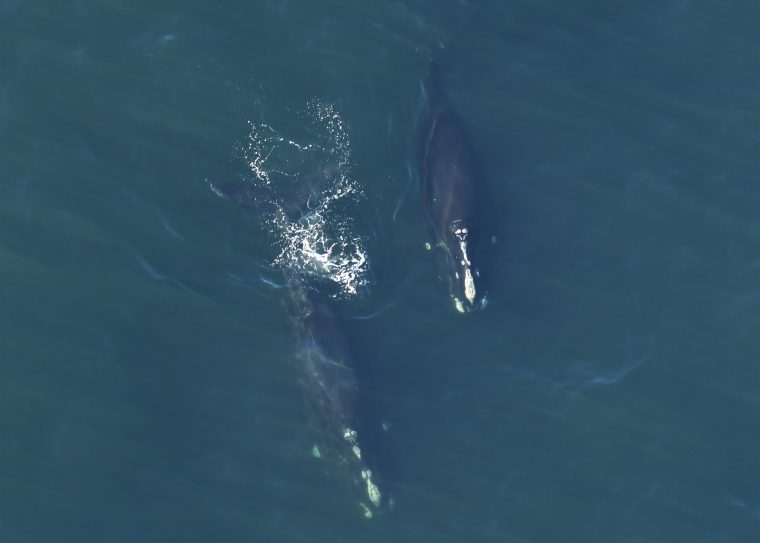The Aquarium will be closed to the public on Wednesday, April 2, for an internal staff event. Regular operating hours will resume on April 3.
NOAA Fisheries announces proposed changes to federal vessel speed regulations, as well as a strategy to implement “on-demand” fishing

BOSTON, MASS. (July 29, 2022) – Today, NOAA Fisheries announced important steps to protect North Atlantic right whales, including new vessel speed regulations and a strategy to implement ropeless or “on-demand” fishing. These steps are intended to prevent deaths and serious injuries of the critically endangered species.
Proposed changes to vessel strike reduction regulations include expanding the mandatory seasonal speed restrictions of 10 knots or less in designated waters and decreasing the size of vessels that would be required to reduce speed from 65-feet to 35-feet. The changes include making the areas with mandatory seasonal speed restriction zones larger and last for longer periods of time. It also establishes a new framework for implementing mandatory speed restriction in areas where right whales are detected but are not protected by existing seasonal speed restriction zones.
“The proposed rule reflects what Aquarium scientists see out on the water and verify through spatial analysis: Right whales’ habitat use and movements are becoming increasingly difficult to predict as warming waters shift where right whales travel and feed,” said Amy Knowlton, a Senior Scientist in the New England Aquarium’s Anderson Cabot Center for Ocean Life. “We all have a role to play in protecting the iconic North Atlantic right whale, and the proposed rule will encompass more vessels on the water, including most larger than 35 feet.”
NOAA also announced a new “Ropeless Roadmap” to develop on-demand fishing broadly. New England Aquarium science continues to inform government action, and the Aquarium stands ready to accept NOAA’s call to partner in providing input on the roadmap.
“The Roadmap engages fishermen from the outset of the research, development, and testing process, a vital component to successful implementation. This strategy reflects the opportunity to make a generational transformation and acknowledges there is much work to be done to address barriers to implementation, including financial and permitting challenges,” said New England Aquarium Research Scientist Heather Pettis.
Recent research led by Knowlton that looked at the health effects of fishing gear entanglements found North Atlantic right whales with severe injuries are more likely to die than those with minor ones, determining entanglements are now the leading cause of serious injury and mortality in the critically endangered species. The research underscored the urgent need for changes to the fishing industry as the species, with an estimated population of fewer than 350 individuals, faces extinction.
The New England Aquarium has one of the longest-running right whale research programs in the world, extensively studying the animals for more than 40 years. Scientists focus on solutions-based work, collaborating with fishermen on new techniques to reduce deadly entanglements in fishing gear, conducting spatial analyses to assess risk from vessels, facilitating communication across the maritime industry to reduce vessel strikes, and working with lawmakers locally, nationally, and internationally to develop science-based protections for the whales. The Aquarium looks forward to bringing the best available science to bear on informing the proposed rule in the coming months.
Learn more about right whales here.
MEDIA CONTACT:
Pam Bechtold Snyder – psnyder@neaq.org, 617-686-5068
